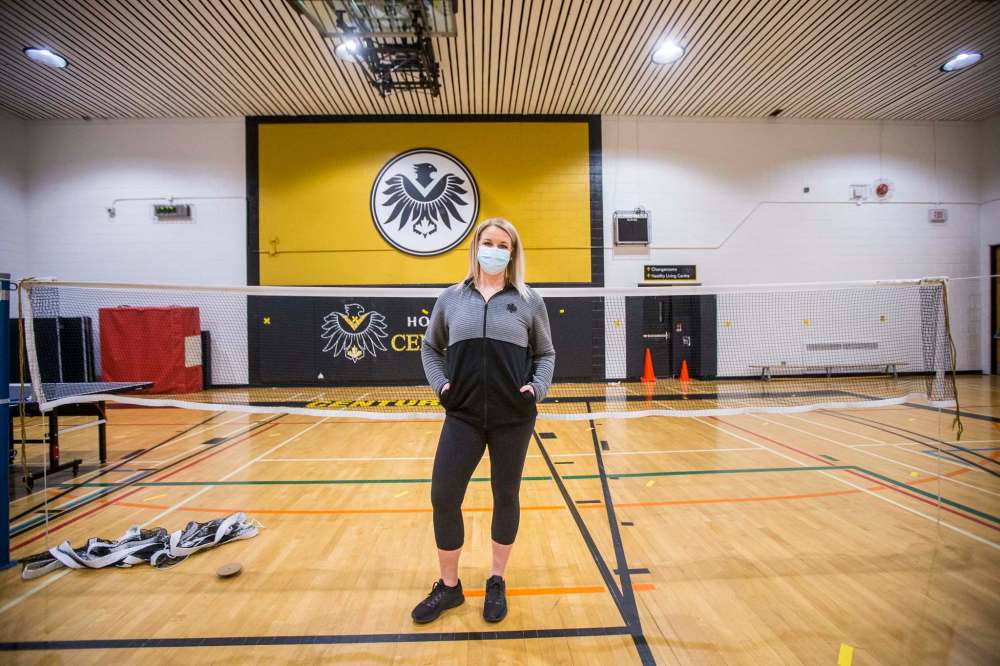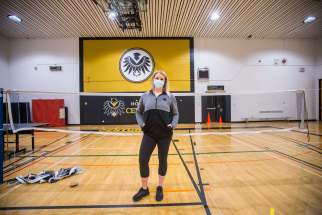Phys-ed experts race to defend mandatory classes
Read this article for free:
or
Already have an account? Log in here »
To continue reading, please subscribe:
Monthly Digital Subscription
$0 for the first 4 weeks*
- Enjoy unlimited reading on winnipegfreepress.com
- Read the E-Edition, our digital replica newspaper
- Access News Break, our award-winning app
- Play interactive puzzles
*No charge for 4 weeks then price increases to the regular rate of $19.00 plus GST every four weeks. Offer available to new and qualified returning subscribers only. Cancel any time.
Monthly Digital Subscription
$4.75/week*
- Enjoy unlimited reading on winnipegfreepress.com
- Read the E-Edition, our digital replica newspaper
- Access News Break, our award-winning app
- Play interactive puzzles
*Billed as $19 plus GST every four weeks. Cancel any time.
To continue reading, please subscribe:
Add Free Press access to your Brandon Sun subscription for only an additional
$1 for the first 4 weeks*
*Your next subscription payment will increase by $1.00 and you will be charged $16.99 plus GST for four weeks. After four weeks, your payment will increase to $23.99 plus GST every four weeks.
Read unlimited articles for free today:
or
Already have an account? Log in here »
Hey there, time traveller!
This article was published 30/03/2021 (1718 days ago), so information in it may no longer be current.
Phys-ed teachers fear making fitness optional at the end of high school in Manitoba would be a step back in battling obesity rates and teaching students how to make healthy lifestyle choices after they graduate.
Manitoba is one of the only provinces that requires students obtain physical and health education credits in Grade 11 and 12.
In its final report released earlier this month, the K-12 commission on public education recommended the province replace those courses with “more rigorous” ones that are for marks, instead of a status-quo completion checkmark.

The commission suggested Manitoba develop new classes that address healthy mind, body and lifestyle concepts, while incorporating lessons on financial management, nutrition, entrepreneurialism, employability and parenting skills.
The province has accepted the recommendation, and plans to now review the requirements and existing curriculums. A specific timeline has yet to be set, but the province has indicated a curriculum review panel must first be set up.
It would be “a big mistake” to move away from mandatory phys-ed, said Eric Sung, a phys-ed teacher at Dakota Collegiate in Winnipeg.
Before the COVID-19 pandemic altered lesson plans, Sung took students rock climbing and to fitness facilities — in part, so they would get exposure to exercise outside a school gym.
“It has a very large impact on how comfortable students feel being active in those public settings, signing up for a gym membership and knowing how to use the equipment,” Sung said, adding he teaches lifelong lessons about physical literacy.
Deondra Twerdun-Peters at Fort Richmond Collegiate in Winnipeg echoed those sentiments, saying 21st century phys-ed is about holistic wellness — a “drastically different” approach in comparison to the old sports-based model.
Conversations about mental health, stress management and suicide prevention are now staples, as well as yoga, spinning and strength training, said Twerdun-Peters, a phys-ed specialist.
Without phys-ed, she questions how teenagers will meet national 24-hour movement guidelines.
Youth ages five to 17 are supposed to get at least 60 minutes of moderate to vigorous physical activity daily and several hours of light exercise.
The reality is activity levels decline rapidly between the ages of 12 and 18, particularly among girls, said Jonathan McGavock, a research scientist at the Children’s Hospital Research Institute of Manitoba.
“We’re trying to tackle something that’s super complex and we’re always looking for the magic bullet or the one solution — and it’s just not that simple,” said McGavock, who has co-published several studies on the effectiveness of Manitoba’s mandatory phys-ed policy.
“If the province decides (the policy) is not effective, they’re just removing one more element that comes in our large toolbox of our strategies to keep our province healthy.”

Research suggests the policy introduced in 2008 has not had a significant impact on increasing adolescent activity, but it has lessened the sharp decline students with low baseline activity levels have as they age.
In a statement Tuesday, Education Minister Cliff Cullen said Manitoba encourages active lifestyles, but also recognizes “not all students gravitate to physical activity and sports in later grades.”
Clayton Manness, a former Progressive Conservative finance and education minister who co-chaired the K-12 commission, said commissioners found there was “a dearth of information on basic economics.”
Another commissioner told the Free Press the review discovered an option to log phys-ed hours for credit was being abused.
“To me, it seems like a lot of stuff in the review, it’s all about money, not about producing better citizens,” said J.J. Ross, phys-ed and health co-ordinator at the St. James-Assiniboia School Division.
Ross welcomes a curriculum review, but champions a future of mandatory phys-ed where all high schoolers must participate in-person every year to keep them engaged.
It would, however, would come at a price tag to hire staff and improve facilities, he said.
maggie.macintosh@freepress.mb.ca
Twitter: @macintoshmaggie

Maggie Macintosh reports on education for the Winnipeg Free Press. Funding for the Free Press education reporter comes from the Government of Canada through the Local Journalism Initiative.
Our newsroom depends on a growing audience of readers to power our journalism. If you are not a paid reader, please consider becoming a subscriber.
Our newsroom depends on its audience of readers to power our journalism. Thank you for your support.





